LIFESTYLE
40 Timeless Classics You Need to Read Before You Die
Published
7 months agoon
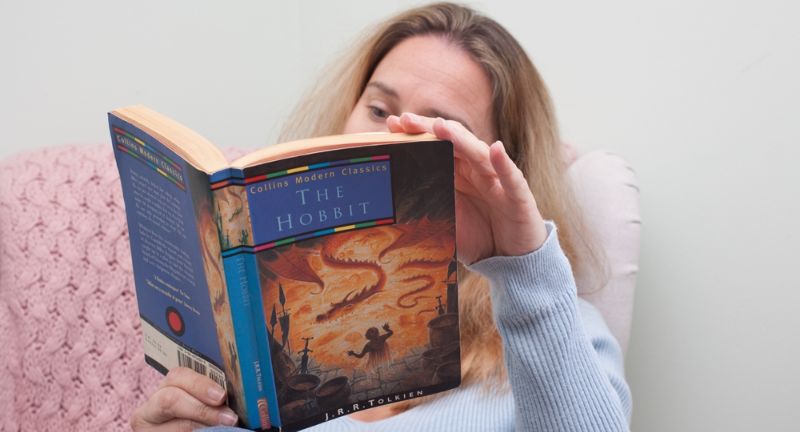
Shutterstock
Books have the power to transport us to different worlds, broaden our perspectives, and leave lasting impressions on our lives. Some books stand out as timeless classics, offering insights into the human condition, society, and the complexities of life. Whether through captivating narratives, profound themes, or unforgettable characters, these books have earned their place as essential reading. From epic tales of adventure to poignant explorations of morality, these works challenge, inspire, and provoke thought. Here are 40 books that everyone should read at least once in their lifetime.
To Kill a Mockingbird by Harper Lee

Shutterstock
A powerful novel that dives deep into the issues of racial injustice and moral growth in the American South. Seen through the innocent eyes of a young girl, Scout Finch, the story unfolds as her father, Atticus Finch, defends a black man wrongly accused of raping a white woman. The novel challenges readers to confront their own prejudices and reflects on the importance of empathy and understanding. It remains a timeless exploration of the human condition and the fight for justice.
1984 by George Orwell

Shutterstock
1984 is a dystopian masterpiece that paints a chilling picture of a totalitarian regime where surveillance and control are omnipresent. The protagonist, Winston Smith, grapples with the oppressive system, questioning the truth and seeking individuality in a world that demands conformity. Orwell’s novel warns of the dangers of unchecked power and the loss of personal freedoms. Its relevance continues today as it reminds readers of the importance of resisting authoritarianism in any form.
Pride and Prejudice by Jane Austen

Shutterstock
A classic novel that masterfully intertwines romance with social critique, Pride and Prejudice delves into the complexities of love, marriage, and societal expectations. Elizabeth Bennet’s sharp wit and strong will challenge the norms of her time, while Mr. Darcy’s evolving character demonstrates the power of humility and change. The novel explores the impacts of class, family, and personal growth on relationships. Its timeless themes continue to resonate, making it a beloved work for readers across generations.
The Great Gatsby by F. Scott Fitzgerald
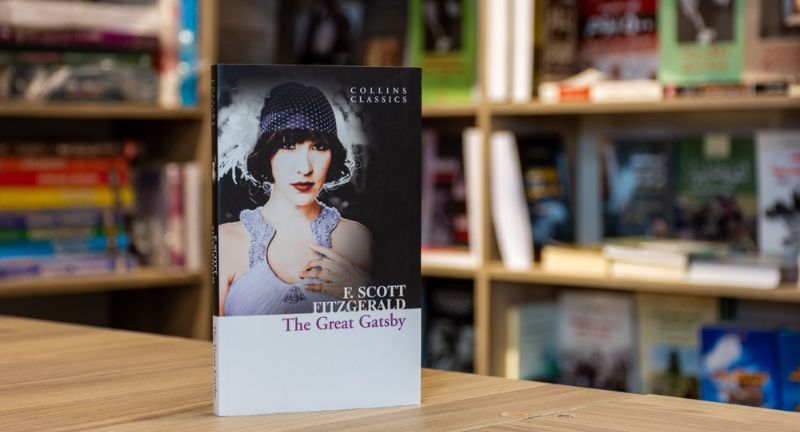
Shutterstock
Set in the glamorous but hollow world of the Roaring Twenties, The Great Gatsby is a poignant critique of the American Dream. The enigmatic Jay Gatsby’s relentless pursuit of wealth and status in an effort to win back his lost love, Daisy Buchanan, ultimately leads to tragedy. Fitzgerald’s novel explores themes of love, ambition, and the corrupting influence of wealth. It remains a powerful reflection on the elusive nature of happiness and the moral decay beneath the glittering surface of American society.
Moby-Dick by Herman Melville

Shutterstock
Herman Melville’s Moby-Dick is a profound exploration of obsession, revenge, and the limits of human knowledge. The novel follows Captain Ahab’s monomaniacal quest to kill the great white whale, Moby-Dick, which had previously cost him his leg. Through the eyes of the narrator, Ishmael, readers are drawn into a world of adventure, philosophy, and existential musings. The novel’s rich symbolism and complex characters have made it a cornerstone of American literature, provoking deep reflections on humanity’s place in the universe.
War and Peace by Leo Tolstoy

Shutterstock
War and Peace is an epic novel that blends a sweeping historical narrative with deep psychological insight into its characters. Tolstoy vividly portrays the lives of Russian aristocrats as they navigate the turbulence of the Napoleonic Wars, capturing both the grand scope of history and the intimate struggles of personal lives. Through its portrayal of war, love, and the passage of time, the novel raises profound questions about fate, free will, and the nature of human existence. It stands as a monumental achievement in world literature, offering a rich tapestry of life’s complexities.
One Hundred Years of Solitude by Gabriel García Márquez
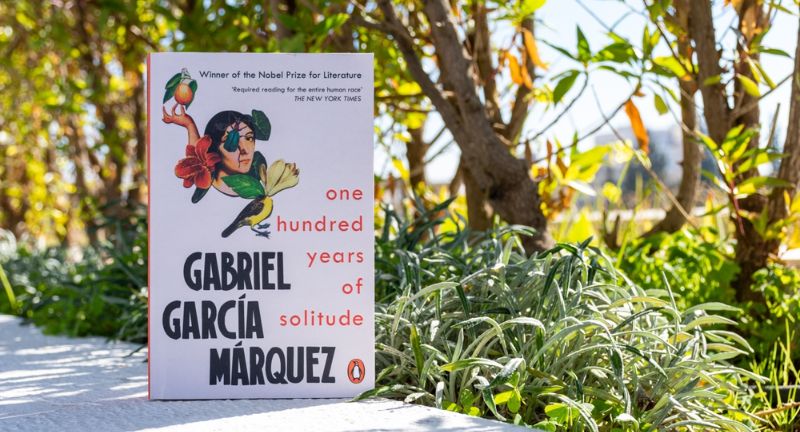
Shutterstock
Gabriel García Márquez’s One Hundred Years of Solitude is a landmark work of magical realism that tells the story of the Buendía family over several generations. Set in the fictional town of Macondo, the novel blends the fantastical with the historical, creating a richly layered narrative that reflects the complexities of Latin American culture and history. The novel’s exploration of time, memory, and the cyclical nature of history invites readers to contemplate the broader forces that shape human destiny. Its vivid imagery and poetic language have made it a beloved and influential work worldwide.
The Catcher in the Rye by J.D. Salinger
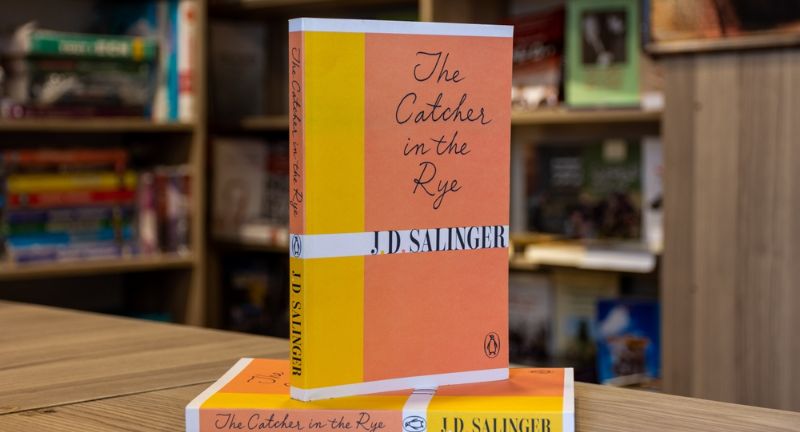
Shutterstock
The Catcher in the Rye captures the confusion and disillusionment of adolescence through the eyes of its iconic protagonist, Holden Caulfield. As Holden wanders the streets of New York City, he grapples with issues of identity, belonging, and the loss of innocence. Salinger’s novel is a raw and honest portrayal of teenage angst, resonating with generations of readers who see their own struggles reflected in Holden’s journey. Its enduring appeal lies in its exploration of the universal themes of alienation and the search for meaning in a seemingly indifferent world.
Crime and Punishment by Fyodor Dostoevsky

Shutterstock
Fyodor Dostoevsky’s Crime and Punishment delves into the mind of its protagonist, Raskolnikov, a young man who commits a murder and then battles with the moral and psychological consequences of his actions. The novel explores themes of guilt, redemption, and the nature of justice, challenging readers to consider the complexities of human motivation and morality. Through its intense narrative and profound philosophical insights, the novel raises questions about the nature of evil and the possibility of atonement. It remains a compelling exploration of the human psyche and the struggles of conscience.
The Lord of the Rings by J.R.R. Tolkien

Shutterstock
J.R.R. Tolkien’s The Lord of the Rings is a grand fantasy epic that has captivated readers with its richly detailed world and timeless themes. The story follows the journey of Frodo Baggins as he undertakes the perilous quest to destroy the One Ring, a powerful artifact that could bring about the end of the world. Along the way, themes of friendship, courage, and the struggle between good and evil are explored with depth and nuance. The novel’s intricate world-building and compelling narrative have made it a cornerstone of the fantasy genre, inspiring countless works of fiction and fantasy.
Brave New World by Aldous Huxley
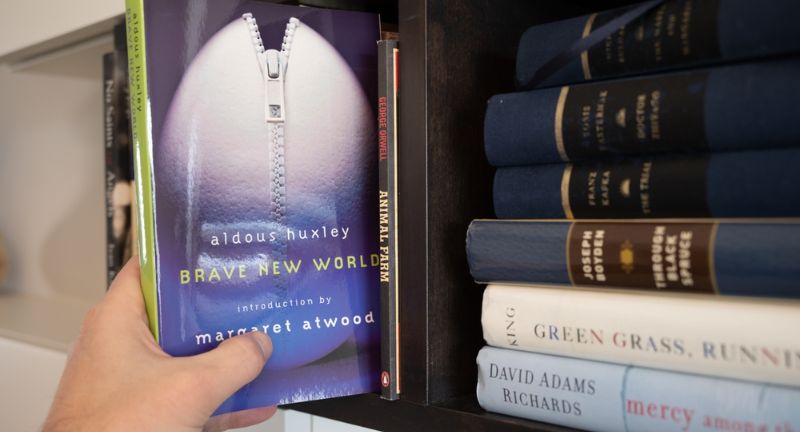
Shutterstock
Aldous Huxley’s Brave New World presents a dystopian vision of a future society where humans are engineered for specific roles, and individuality is suppressed in favor of social stability. The novel’s protagonist, Bernard Marx, begins to question the society’s values as he experiences feelings of alienation and discontent. Through its portrayal of a world obsessed with technology, consumerism, and instant gratification, the novel offers a sharp critique of contemporary trends. Huxley’s work remains a powerful warning of the dangers of sacrificing individuality and freedom for the sake of societal order and efficiency.
The Diary of a Young Girl by Anne Frank
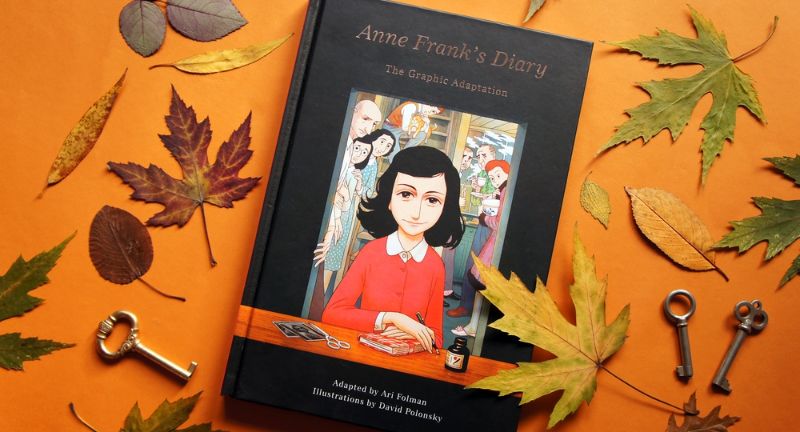
Shutterstock
The Diary of a Young Girl is the poignant, real-life account of Anne Frank, a Jewish girl hiding from the Nazis during World War II. Through her diary, Anne provides a vivid and moving portrayal of life in hiding, filled with hope, fear, and a longing for freedom. Her reflections on humanity, family, and the horrors of war offer a powerful reminder of the atrocities committed during the Holocaust. Anne’s voice continues to resonate with readers, reminding us of the enduring power of hope and the importance of remembering the past.
The Brothers Karamazov by Fyodor Dostoevsky
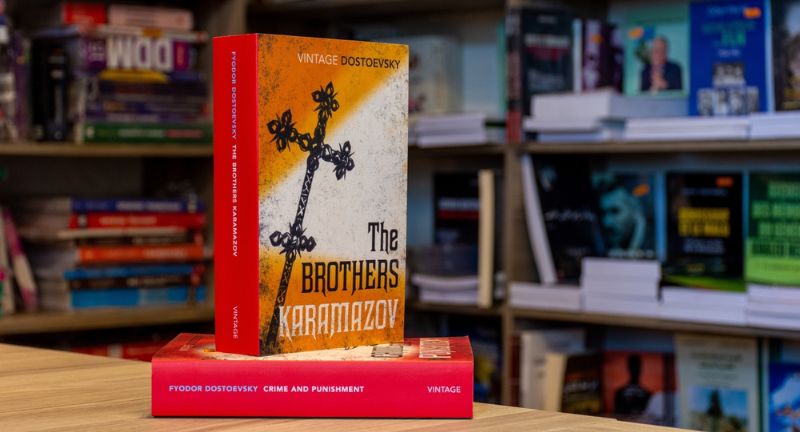
Shutterstock
The Brothers Karamazov is a profound exploration of faith, doubt, and morality, centered on the lives of three brothers and their tumultuous relationship with their father. Dostoevsky delves into the complexities of human nature, examining the conflicts between reason, faith, and emotion. The novel’s rich philosophical discourse and its intense psychological portrait of its characters make it a monumental work of literature. Its exploration of the nature of good and evil, and the human struggle for redemption, continues to captivate readers and provoke deep reflection.
The Alchemist by Paulo Coelho
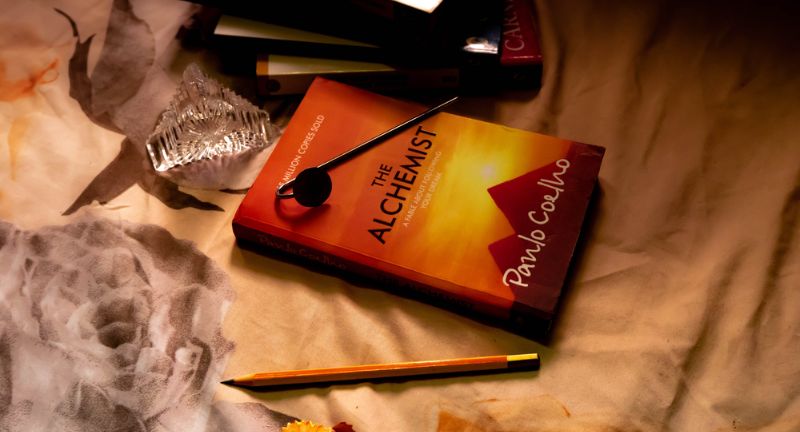
Shutterstock
Paulo Coelho’s The Alchemist is a philosophical novel that follows the journey of a shepherd boy named Santiago as he searches for a hidden treasure. Along the way, Santiago learns valuable lessons about the importance of following one’s dreams, listening to one’s heart, and recognizing the signs of destiny. The novel’s simple yet profound message about the pursuit of happiness and the fulfillment of one’s personal legend has resonated with millions of readers worldwide. It is a timeless tale of self-discovery and spiritual awakening that encourages readers to seek out their true purpose in life.
Catch-22 by Joseph Heller

Shutterstock
Joseph Heller’s Catch-22 is a satirical novel that captures the absurdity of war and the bureaucratic madness of military life. The story follows Captain John Yossarian, a World War II bombardier, who becomes increasingly frustrated by the illogical rules and paradoxes of the military. The novel coined the term “catch-22” to describe a no-win situation, reflecting the novel’s central theme of the futility and irony inherent in the human condition. Its dark humor and biting social commentary make it a powerful critique of institutional power and the dehumanizing effects of war.
The Grapes of Wrath by John Steinbeck
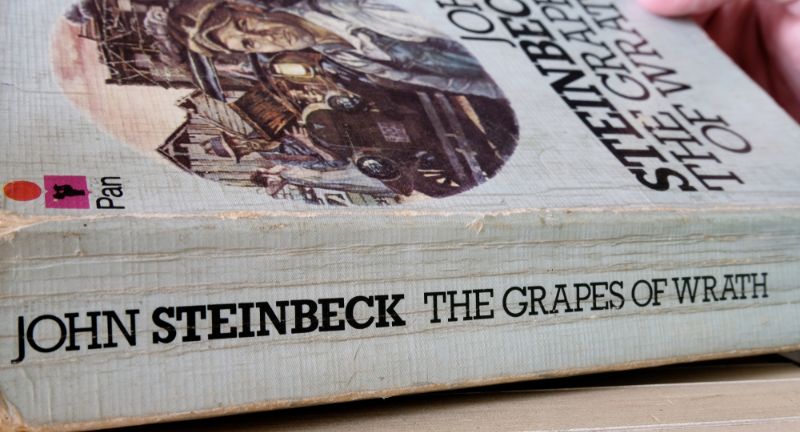
Shutterstock
John Steinbeck’s The Grapes of Wrath is a powerful portrayal of the struggles faced by a family of migrant workers during the Great Depression. The novel follows the Joad family as they journey westward in search of a better life, only to encounter hardship, exploitation, and injustice along the way. Steinbeck’s vivid depiction of the human spirit in the face of adversity and his critique of the social and economic inequalities of the time have made it a seminal work in American literature. The novel’s enduring relevance lies in its exploration of themes such as poverty, dignity, and the resilience of the human spirit.
Jane Eyre by Charlotte Brontë

Shutterstock
Jane Eyre by Charlotte Brontë is a groundbreaking novel that combines romance, gothic elements, and social critique. The story follows the life of Jane Eyre, an orphaned girl who faces a series of hardships but remains steadfast in her quest for independence and self-respect. As she navigates the challenges of love, class, and gender expectations, Jane emerges as a strong and resilient heroine. The novel’s exploration of themes such as morality, social justice, and the pursuit of true love continues to resonate with readers, making it a classic in English literature.
The Hobbit by J.R.R. Tolkien

Shutterstock
J.R.R. Tolkien’s The Hobbit is a beloved prelude to The Lord of the Rings, chronicling the adventures of Bilbo Baggins as he embarks on a journey to reclaim a lost treasure. Along the way, Bilbo encounters a host of fantastical creatures and faces numerous challenges that test his courage and wit. The novel’s themes of heroism, the importance of home, and the transformative power of adventure have made it a favorite among readers of all ages. Its rich world-building and timeless storytelling continue to inspire and captivate generations of readers.
The Picture of Dorian Gray by Oscar Wilde
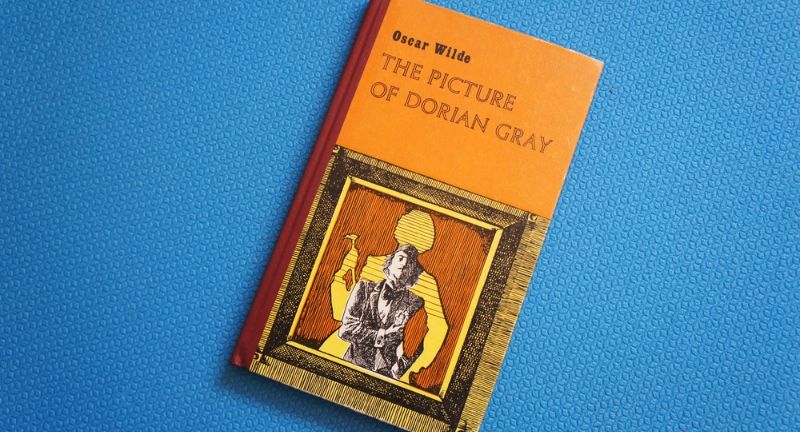
Shutterstock
Oscar Wilde’s The Picture of Dorian Gray is a dark and captivating tale that explores the dangers of vanity, moral corruption, and the pursuit of eternal youth. The novel follows Dorian Gray, a young man whose portrait ages while he remains youthful, allowing him to indulge in a life of excess and debauchery without consequence. Wilde’s witty and provocative prose delves into the nature of beauty, art, and the human soul. The novel’s exploration of the consequences of living a life devoted to pleasure and appearances makes it a timeless cautionary tale.
Fahrenheit 451 by Ray Bradbury
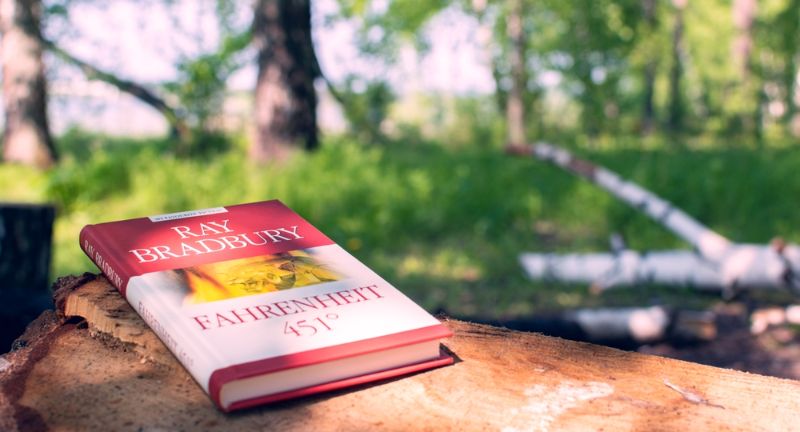
Shutterstock
Ray Bradbury’s Fahrenheit 451 is a dystopian novel that imagines a future where books are banned and “firemen” burn them to suppress intellectual freedom. The protagonist, Guy Montag, is a fireman who begins to question the oppressive society he serves and the purpose of his work. The novel explores themes of censorship, the dangers of state control, and the dehumanizing effects of technology. Bradbury’s cautionary tale remains a powerful reminder of the importance of free thought and the preservation of knowledge in the face of authoritarianism.
Wuthering Heights by Emily Brontë

Shutterstock
Emily Brontë’s Wuthering Heights is a haunting tale of passion, revenge, and the destructive power of love. Set against the wild, untamed moors of England, the novel tells the story of Heathcliff and Catherine, whose intense and troubled relationship transcends time and even death. Brontë’s exploration of the darker aspects of human nature, along with her vivid portrayal of the natural world, creates a sense of both beauty and foreboding. The novel’s themes of obsession, betrayal, and the consequences of unbridled emotions continue to captivate readers and make it a classic of English literature.
The Odyssey by Homer
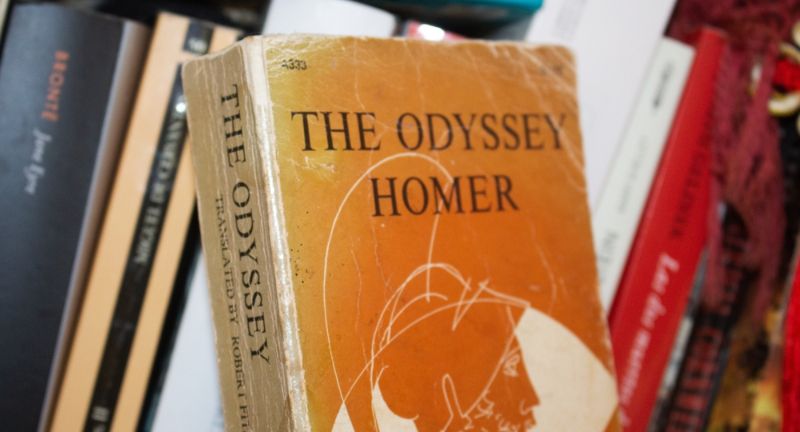
Shutterstock
Homer’s The Odyssey is an epic poem that recounts the adventures of Odysseus as he struggles to return home after the Trojan War. The poem’s timeless themes of heroism, perseverance, and the longing for home have made it a cornerstone of Western literature. Odysseus’s encounters with mythical creatures, gods, and challenges along his journey highlight the complexity of the human experience and the enduring struggle between fate and free will. The Odyssey continues to be a source of inspiration and a reflection on the human condition.
The Divine Comedy by Dante Alighieri
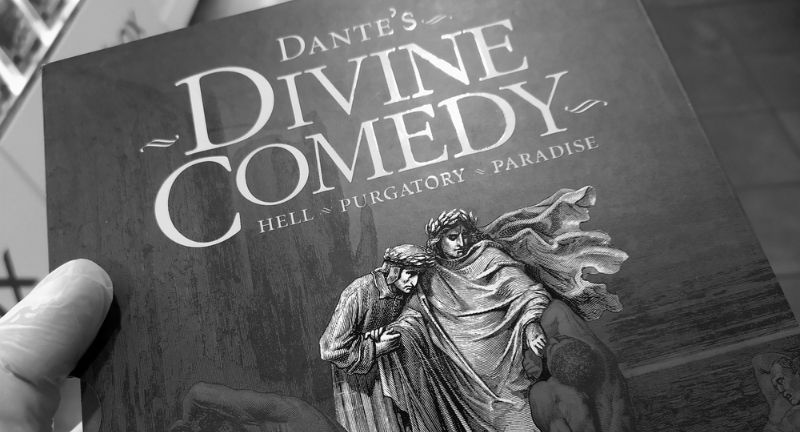
Shutterstock
Dante Alighieri’s The Divine Comedy is a monumental work of medieval literature that takes readers on a journey through Hell, Purgatory, and Heaven. The poem is an allegory of the soul’s journey towards God, filled with vivid imagery and profound theological insights. Dante’s exploration of sin, redemption, and divine justice provides a comprehensive vision of the medieval Christian worldview. The poem’s rich symbolism and poetic mastery have made it a foundational text in the Western literary tradition, offering readers deep reflections on the nature of human existence and the afterlife.
Don Quixote by Miguel de Cervantes

Shutterstock
Miguel de Cervantes’s Don Quixote is a satirical novel that follows the misadventures of a man who believes himself to be a knight, battling imaginary foes in pursuit of chivalric ideals. The novel is a brilliant exploration of the conflict between reality and illusion, as well as a commentary on the changing social and cultural landscape of 17th-century Spain. Don Quixote’s tragicomic quest for honor and glory, despite the absurdity of his actions, resonates with readers as a timeless reflection on the power of dreams and the human spirit. The novel’s enduring appeal lies in its rich characterizations, humor, and insights into the complexities of human nature.
To the Lighthouse by Virginia Woolf
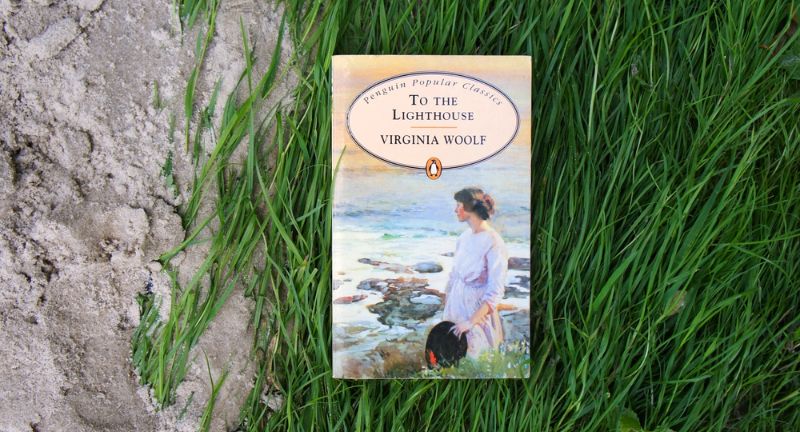
Shutterstock
Virginia Woolf’s To the Lighthouse is a modernist novel that delves into the inner lives of its characters through its stream-of-consciousness narrative. The novel explores themes of time, memory, and the nature of art, centered around the Ramsay family’s visits to their summer home. Woolf’s lyrical prose captures the fleeting moments of life and the complex emotions that underlie human relationships. The novel’s exploration of the passage of time and the impermanence of existence continues to resonate with readers, making it a profound meditation on the human experience.
Lolita by Vladimir Nabokov

Shutterstock
Vladimir Nabokov’s Lolita is a controversial novel that explores themes of obsession, manipulation, and the darker side of human desire. The story is narrated by Humbert Humbert, a man who becomes infatuated with a young girl named Lolita, leading to a disturbing and complex relationship. Nabokov’s masterful use of language and his exploration of moral ambiguity challenge readers to grapple with the unsettling content of the novel. Lolita remains a provocative and thought-provoking work that raises questions about the nature of art, ethics, and the human condition.
The Sound and the Fury by William Faulkner
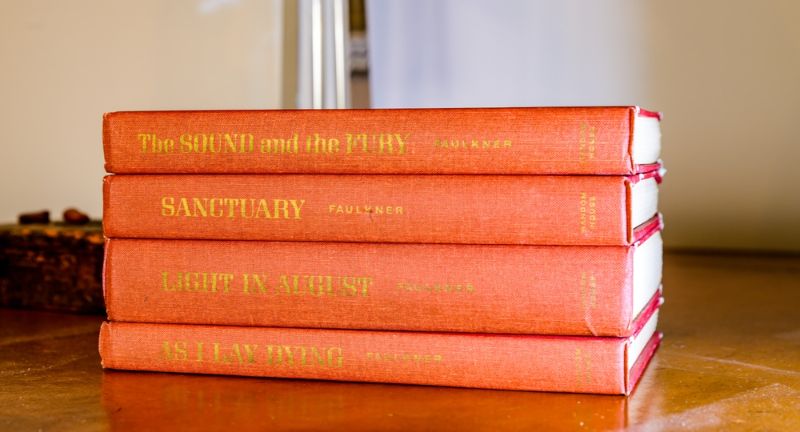
Shutterstock
William Faulkner’s The Sound and the Fury is a complex narrative that explores the decline of a Southern family through the fragmented perspectives of its members. The novel employs stream-of-consciousness techniques to delve into the minds of its characters, revealing their inner turmoil and the disintegration of their world. Faulkner’s innovative use of language and structure challenges readers to piece together the story from the shifting and often disjointed viewpoints. The novel’s exploration of themes such as memory, loss, and the passage of time makes it a profound and enduring work of modernist literature.
Ulysses by James Joyce
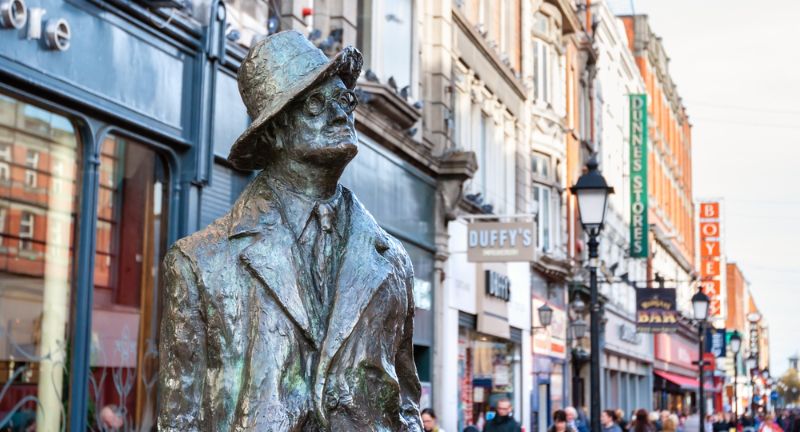
Shutterstock
James Joyce’s Ulysses is a modernist masterpiece that follows the thoughts and experiences of Leopold Bloom on a single day in Dublin. The novel’s stream-of-consciousness narrative and rich allusions to classical literature create a complex and layered reading experience. Joyce’s exploration of the ordinary and the extraordinary in everyday life, as well as his innovative use of language, have made Ulysses a seminal work in 20th-century literature. The novel’s blend of realism, symbolism, and experimental prose continues to challenge and inspire readers and scholars alike.
Beloved by Toni Morrison

Shutterstock
Toni Morrison’s Beloved is a powerful novel that explores the legacy of slavery and the haunting presence of the past. The story centers on Sethe, an escaped slave who is haunted by the ghost of her dead daughter, Beloved, and must confront the trauma of her past. Morrison’s lyrical prose and complex characters create a deeply moving narrative that examines the impacts of slavery on individual and collective memory. The novel’s exploration of themes such as motherhood, identity, and the struggle for freedom has made it a seminal work in American literature.
Slaughterhouse-Five by Kurt Vonnegut
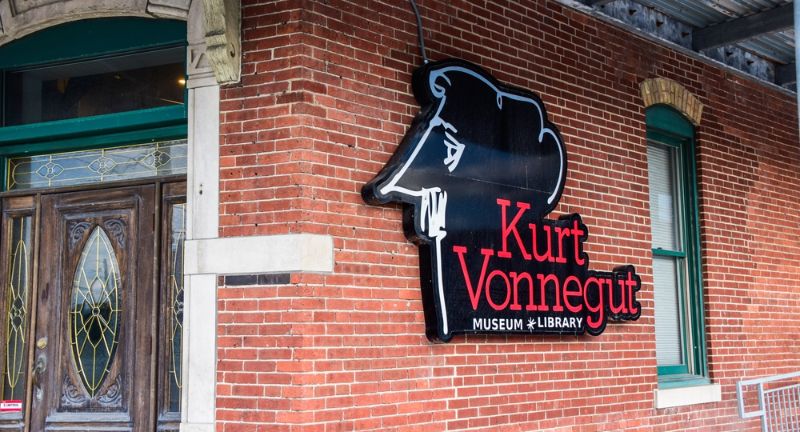
Shutterstock
Kurt Vonnegut’s Slaughterhouse-Five is a satirical anti-war novel that blends science fiction with a deeply personal account of the bombing of Dresden during World War II. The novel follows Billy Pilgrim, an optometrist who becomes “unstuck in time” and experiences moments from his life in a nonlinear fashion. Through its dark humor and poignant reflections on the absurdity of war, the novel critiques the senselessness of violence and the illusion of free will. Slaughterhouse-Five remains a powerful and thought-provoking work that challenges readers to reconsider the nature of time, memory, and human existence.
Anna Karenina by Leo Tolstoy

Shutterstock
Leo Tolstoy’s Anna Karenina is a tragic novel that explores the complexities of love, infidelity, and society through the intersecting lives of several Russian aristocrats. The novel’s protagonist, Anna, becomes embroiled in a passionate affair that ultimately leads to her downfall, while other characters grapple with issues of faith, family, and social change. Tolstoy’s rich characterizations and keen observations of human behavior make the novel a profound exploration of the human condition. Its themes of love, morality, and the consequences of personal choices continue to resonate with readers, making it one of the great works of world literature.
A Tale of Two Cities by Charles Dickens

Shutterstock
Charles Dickens’s A Tale of Two Cities is a historical novel set during the turbulent times of the French Revolution. The novel explores themes of sacrifice, redemption, and the contrast between justice and vengeance through the intertwined lives of its characters. Dickens’s vivid portrayal of the chaos and violence of the Revolution, along with his exploration of the human capacity for both good and evil, creates a compelling narrative. The novel’s famous opening line, “It was the best of times, it was the worst of times,” captures the duality of the era and sets the tone for the epic tale that follows.
Middlemarch by George Eliot

Shutterstock
George Eliot’s Middlemarch is a richly detailed novel that examines the social and political changes of 19th-century England through the lives of its characters. The novel’s central character, Dorothea Brooke, struggles to find her place in a society that limits her opportunities as a woman, while other characters navigate the challenges of love, ambition, and social reform. Eliot’s keen insight into human nature and her exploration of themes such as morality, religion, and the complexities of marriage have made Middlemarch a cornerstone of English literature. The novel’s intricate narrative and depth of character continue to captivate readers and inspire critical acclaim.
Frankenstein by Mary Shelley

Shutterstock
Mary Shelley’s Frankenstein is a gothic novel that tells the story of Victor Frankenstein, a scientist who creates a living being from dead matter, only to be horrified by the consequences. The novel explores themes of ambition, hubris, and the ethical responsibilities of scientific discovery, as Frankenstein’s creation becomes a monstrous figure rejected by society. Shelley’s narrative raises profound questions about the nature of humanity and the consequences of playing God, making it a timeless cautionary tale. Frankenstein continues to resonate with readers as a powerful exploration of the darker aspects of human ambition and the complexities of creation.
The Road by Cormac McCarthy
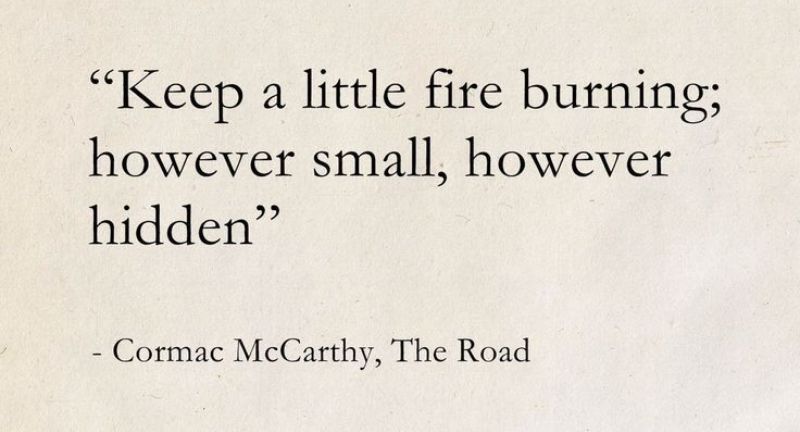
Pinterest
Cormac McCarthy’s The Road is a bleak yet profoundly moving novel that follows a father and son as they journey through a post-apocalyptic landscape. The novel’s sparse prose and stark imagery create a haunting portrayal of a world stripped of civilization and hope. Despite the desolation, the bond between the father and son provides a glimmer of humanity and love in the face of overwhelming darkness. The Road is a powerful meditation on survival, the endurance of love, and the fragile nature of human existence.
Invisible Man by Ralph Ellison

Shutterstock
Ralph Ellison’s Invisible Man is a powerful exploration of race, identity, and invisibility in America. The novel follows an unnamed black narrator as he navigates the challenges of being seen—or not seen—by the society around him. Through the narrator’s experiences, Ellison delves into the complexities of race relations, the search for identity, and the struggle for recognition and self-worth. Invisible Man remains a seminal work in American literature, offering a profound commentary on the social and psychological aspects of invisibility and marginalization.
Maus by Art Spiegelman
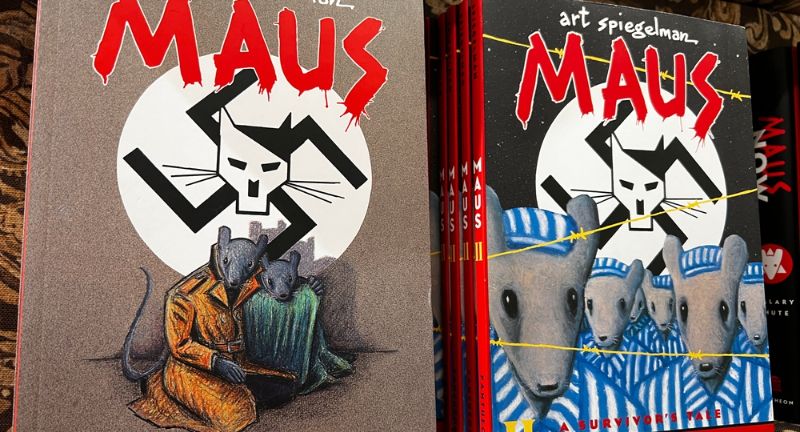
Shutterstock
Art Spiegelman’s Maus is a groundbreaking graphic novel that tells the story of a Holocaust survivor through the lens of both history and personal narrative. The novel uses the unique medium of graphic art to depict the horrors of the Holocaust, with Jews represented as mice and Nazis as cats. Spiegelman’s blending of personal history with broader themes of memory, trauma, and the legacy of the past creates a powerful and moving work. Maus is not only a profound exploration of the Holocaust but also a reflection on the complexities of survivor guilt, memory, and the transmission of history across generations.
The Stranger by Albert Camus
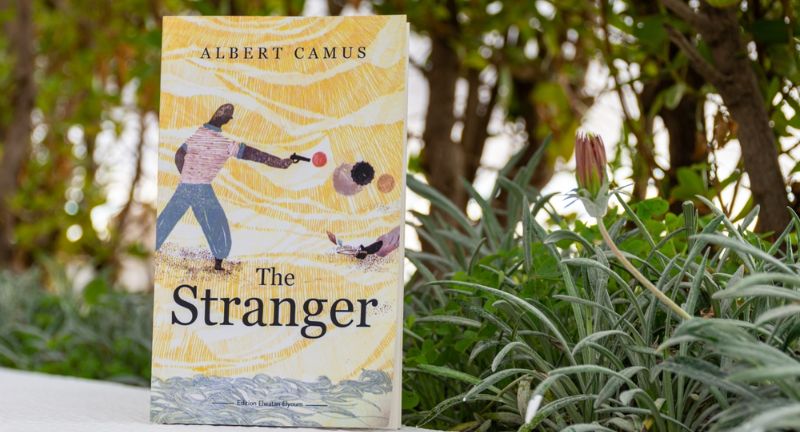
Shutterstock
Albert Camus’s The Stranger is a philosophical novel that explores existential themes through the story of Meursault, a man who becomes indifferent to life after committing a senseless murder. The novel’s detached narrative style reflects Meursault’s emotional disconnection from the world, highlighting the absurdity and meaninglessness of existence. Camus’s exploration of themes such as absurdism, alienation, and the human condition has made The Stranger a seminal work in existential literature. The novel challenges readers to confront the nature of existence and the search for meaning in an indifferent universe.
Gulliver’s Travels by Jonathan Swift

Shutterstock
Jonathan Swift’s Gulliver’s Travels is a satirical adventure novel that critiques human nature and society through the fantastical journeys of its protagonist, Lemuel Gulliver. As Gulliver travels to various strange lands, each with its own peculiar customs and inhabitants, Swift uses these encounters to offer sharp commentary on politics, culture, and the human condition. The novel’s blend of satire, fantasy, and social criticism has made it a classic work of literature that continues to resonate with readers. Gulliver’s Travels invites readers to reflect on the follies and contradictions of human society, making it both an entertaining and thought-provoking read.
Conclusion

Shutterstock
These 40 books offer more than just stories; they provide wisdom, inspiration, and a deeper understanding of the world and ourselves. Each one has left a significant mark on literature and continues to resonate with readers across generations. By exploring these works, you’ll embark on journeys that challenge your thinking, evoke emotions, and leave you with unforgettable experiences. Whether you’re revisiting an old favorite or discovering a new classic, these books are must-reads that enrich the mind and soul. Make time to dive into these timeless treasures and see how they shape your perspective on life.
Related Topics:

More From Lifestylogy
-


25 Ways To Incorporate More Magnesium Into Your Diet
-


28 Inspiring Ideas to Kickstart Your Best Year Yet
-


26 Vegetables That Make Great Additions To Soups For Soup…
-


Are Your Friends Acting Differently Around You? Here Are 30…
-


Why Video Games Are Not Actually Bad
-


Feeling Lost After a Breakup? Here’s How to Find Your…
-


Messy House? 25 Game-Changing Ideas for a Cleaning Schedule You’ll…
-


25 Global Food Trends That Will Continue Into 2025
-


25 Things Only Servers Understand